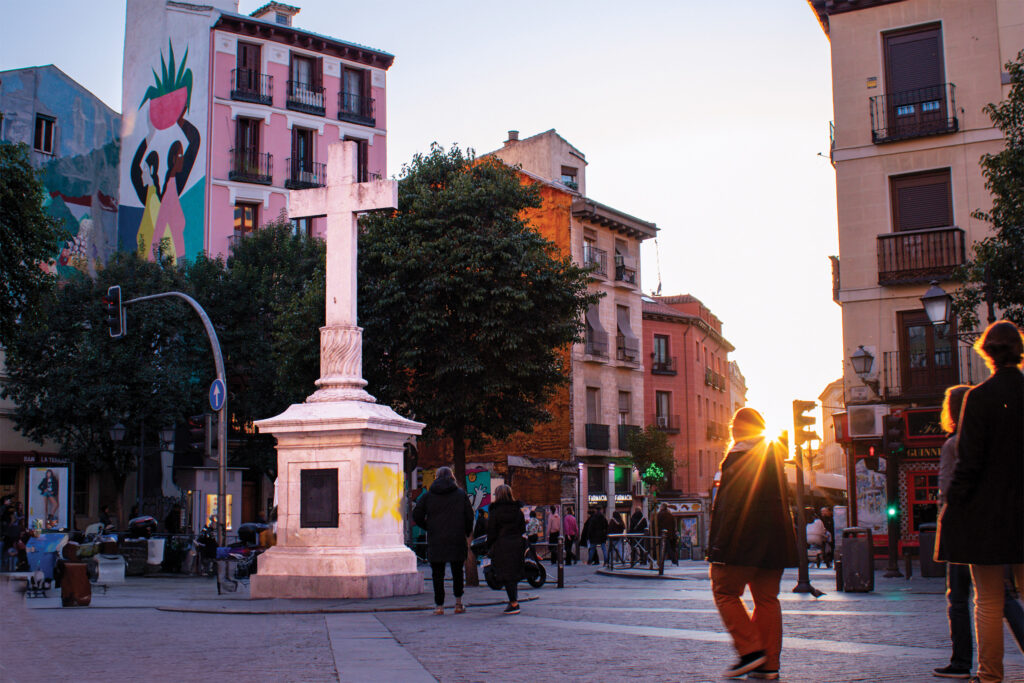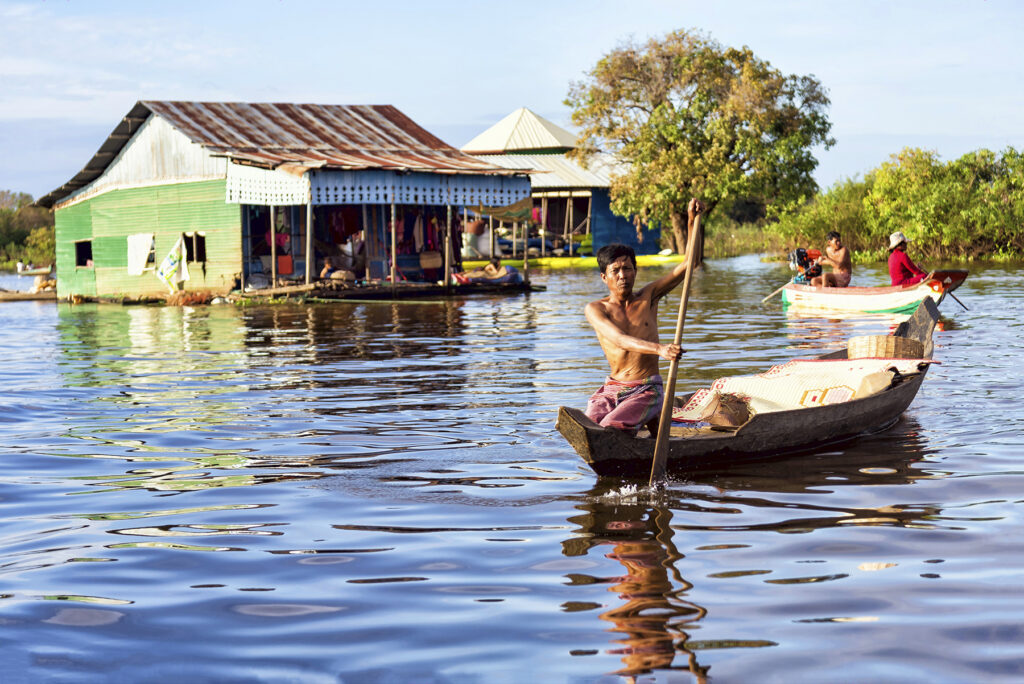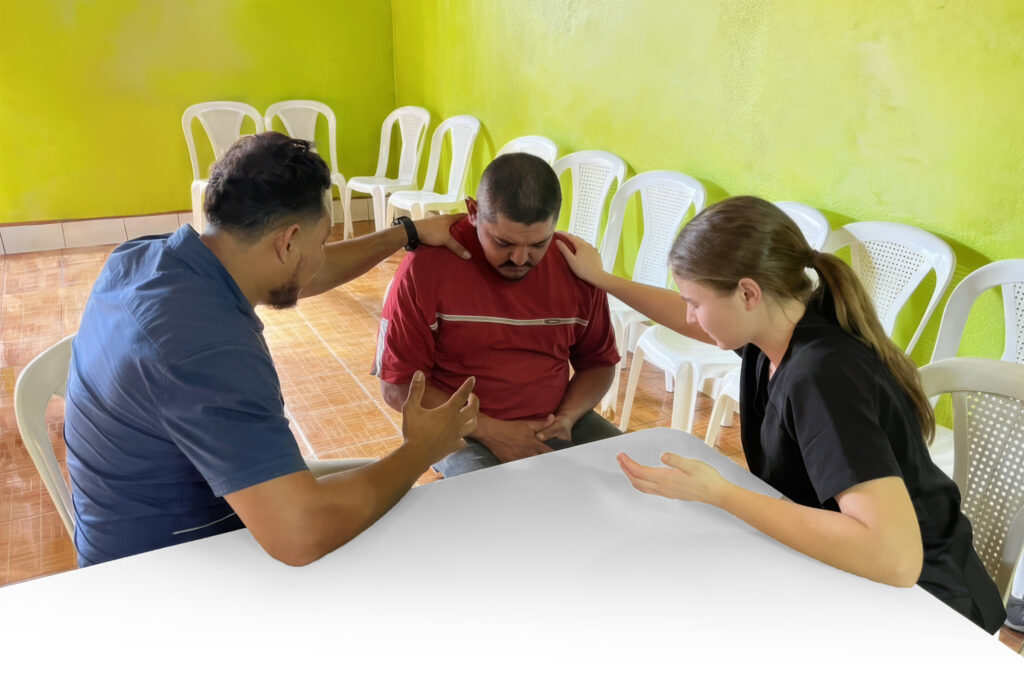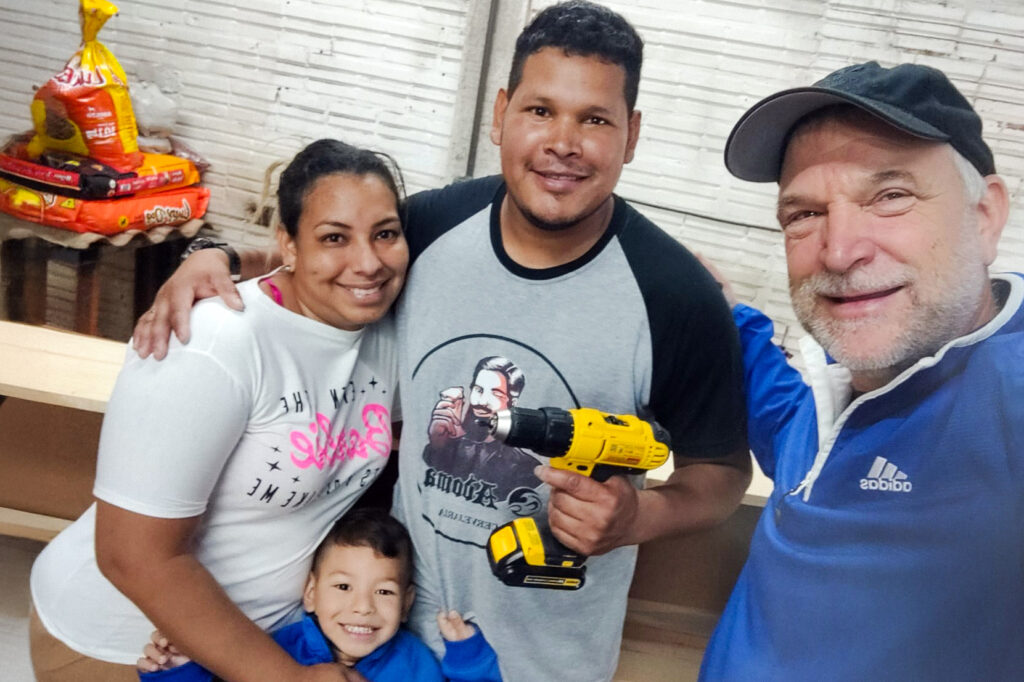The postman’s hand paused over the radio dial.
A man’s voice cut through the static, interrupting his scan for entertainment while cleaning his house. The message came clearly over the airwaves: “You must be born again!”
The year was 1956. The fascist dictatorship of Francisco Franco dominated life in Spain, consolidating power through brutality and collusion with the Catholic Church. When Protestants were forbidden from evangelizing within Spanish borders, the Voice of Tangier broadcast the hope of the gospel by radio from northern Morocco into Europe.
This is the true gospel, the postman marveled as he stood listening. At the end of the transmission, he bowed his head and placed his faith in Christ.
Immediately burdened for his neighbors in small-town Béjar, he began delivering biblical truth with the daily mail. He gathered new believers into his home for a Bible study led by two Argentinian missionaries operating covertly in Spain. His actions quickly attracted notice; soon after the group’s inception, Franco’s secret police raided the Bible study, incarcerating the Argentinians and recording the personal information of all in attendance. Despite the repercussions, the postman remained committed to establishing others in the faith—including his own family.
Three decades later, the postman’s adult daughter moved next to the Pozo family, who proved disruptive. The policeman husband, a drunk, was violently abusive toward his wife and young sons. Witnessing the family’s crisis, the postman’s daughter shared the gospel with the wife and invited her to the small evangelical church in Béjar—now legal under Spain’s democratic government. She received Christ, and later, so did her husband and three sons. The boys grew up in the church, thus extending the spiritual legacy of the postman to future generations of the Pozo family.
“My family was completely broken when I was young, but God has done many miracles, and he has saved and redeemed our family in a very extraordinary way.”
Pastor Miguel Ángel Pozo
“My family was completely broken when I was young,” shared Miguel Ángel, the second Pozo son and ABWE Live Global national partner, “but God has done many miracles, and he has saved and redeemed our family in a very extraordinary way.”
For Miguel Ángel, however, the journey to redemption was only beginning. Distancing himself from the church as a young adult, he followed the influences of radical politics and reckless friends, often partying late into the night on Saturday only to awaken a few hours later to appear presentable for church Sunday morning.
“I wanted to have the best of both worlds, but the truth is that I had the worst of both worlds,” he reflected.
When poor choices led to losing his university scholarship and his housing, he visited his older brother, David, at SEFOVAN, the evangelical seminary in Madrid. Feeling that he had exhausted all other options, Miguel Ángel also decided to enroll at SEFOVAN—where God once again changed the trajectory of his life.
“From the moment I went to seminary, I began studying the Bible, and it changed absolutely everything,” he recalled. “And then I remembered the call that God had given me years before, and I wanted to serve him.”
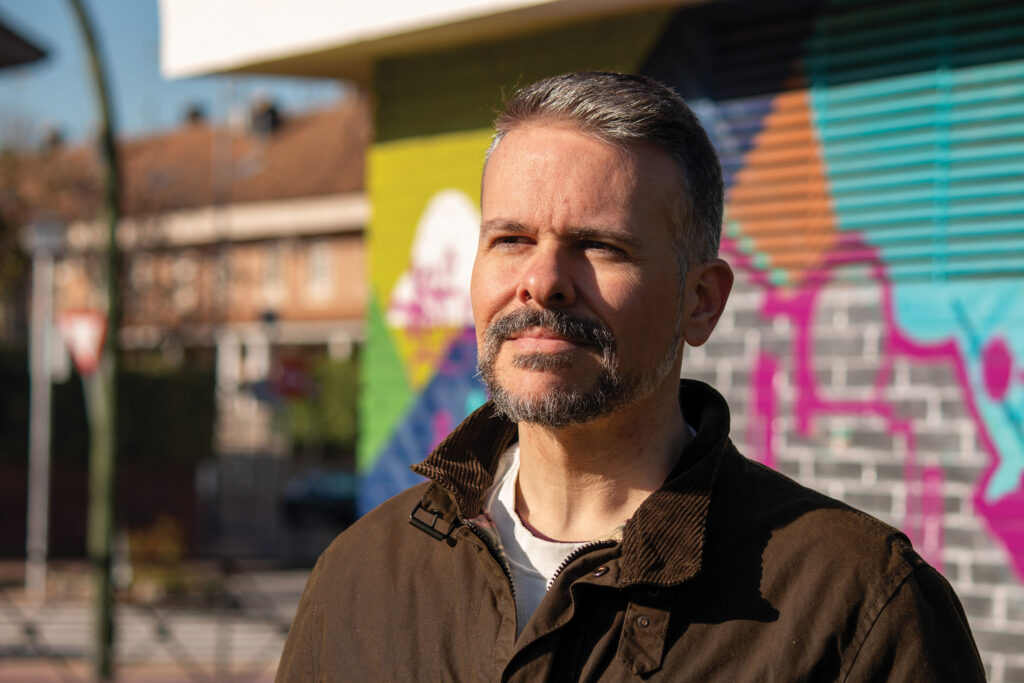
A Missionary’s Prayer Answered
Miguel Ángel’s growing faith in Christ caught the attention of one of his professors, then-ABWE missionary Ken Muckle, who pointed him out to fellow ABWE missionary Rich Brown. Rich had been praying for God to send a godly Spanish leader to serve alongside him in a church plant he had established in 2003 to reach one of the many cities in the greater Madrid metropolitan area lacking an evangelical presence.
Partnership with national pastors has proven to be crucial for effective church planting, not only to ensure the longevity of a ministry after the missionaries are gone, but to connect with Spaniards who, due to cultural traditions of Catholicism, often need to witness firsthand how a Spanish identity and evangelical faith can be compatible.
“We were praying, ‘God, give us a good servant—someone who wants to serve the Lord.’ That was our big requirement. And God answered our prayer.”
Rich brown
“We were praying, ‘God, give us a good servant—someone who wants to serve the Lord,’” Rich said. “That was our big requirement. And God answered our prayer.”
Miguel Ángel and his wife, Rebeca, began working with Rich and Cindy Brown at Alcalá de Henares Evangelical Baptist Church in 2013, beginning a process of intentional discipleship and mentorship. The church officially installed Miguel Ángel as pastor in November 2020, and under his leadership, the congregation has grown both in membership and in focus to train members for ministry.
Meanwhile, God’s providence led Miguel Ángel’s brother, David, to partner with ABWE church planters in a different location. In his early 20s, David had been studying business and economics at a secular university when he began to question the purpose of his life. Why do I want to spend my life working for a company? he wondered. Is it just to make money? Realizing that God was directing him to invest in eternal pursuits, he transferred to SEFOVAN seminary, where he developed a friendship with his professor of Christian living, ABWE missionary Roy Jones. Roy, like Rich and Ken, taught at the seminary to equip Spanish believers to reach and disciple their nation.
Years later, David and his wife, Kimberly, grew increasingly frustrated: their church did not teach the biblical gospel, and they had few other options in their region.
“Just at that moment, Roy called us and told us, ‘We are looking for a Spanish family to come and help us open a church in Torres de la Alameda,’” David said. “It was like an answer from God to our prayers.”
In 2013, David, Roy, and two other families joined together to form a small congregation. Gradually, people from the town began attending, and attendance swelled to around 40. When COVID restrictions limited attendance in 2020, the church leadership began not only streaming church services but also organizing online children’s and youth events for the community—and when restrictions lifted, many families who had joined online began attending in person.
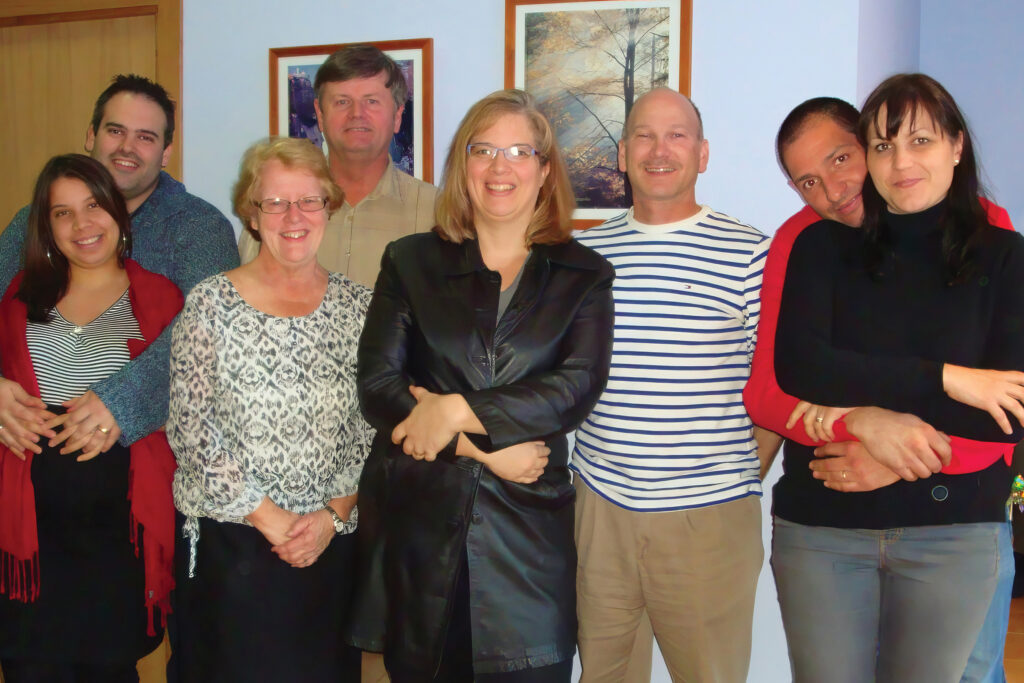
“We still have a great need,” said Roy. “In this area where we live in Torres de la Alameda, there are six or seven towns that have no gospel witness at all, not of any kind. . . . So we’re praying for more laborers.”
Cathedrals Without Christ
In Spain, a landscape punctuated by soaring cathedral spires, centuries-old bell towers, and ornate cupolas resplendent in the Mediterranean sun conceals a spiritual reality obscured by shadows. There, as in much of modern Europe, the religious fervor of Roman Catholicism, Eastern Orthodoxy, and even the Protestant Reformation has abated to leave current generations severed from the light of biblical truth.
“Many European countries today have less than one percent of their population professing to be evangelical Christian,” explained Jeff D., ABWE executive director for Europe. “This statistic is similar to many countries considered unreached.”
Even among the European populations in which vestiges of biblical literacy remain and the percentage of evangelical believers hovers near two percent (generally considered the missiological threshold by which a people group is considered “reached”), these believers remain too few to create a self-sustaining movement to reach and disciple the rest of their nation—Christ’s command in the Great Commission.
Despite the accessibility and relative affluence of Europe, barriers to the gospel abound. Among other nations, Spain is often deemed “the graveyard of missionaries” due to the low reception of the gospel message.
“Culturally, in Spain, we have gone from being a Roman Catholic society, which could not accept evangelicals, to a very secularized society in which we think we have already tried Christianity and it hasn’t worked,” explained Miguel Ángel. “[T]he reality is that we, as a nation, have never tried [evangelical] Christianity.”
The varied religious traditions present unique challenges. “The Catholic believes he is already saved, that he is justified because he fulfills the sacraments and was baptized and confirmed as a child. He believes that you have nothing to teach him, and he doesn’t need anything. And the atheist believes that everything you teach him is a lie,” added David. He highlights cultural pride and self-sufficiency as additional obstacles, quoting the proverb, “In Spain, we don’t have one king; we have 47 million.”
Taking Evangelism and Discipleship From Spanish Towns to TikTok
With many Spaniards living without knowledge of the gospel, ABWE missionaries and national partners focus on church planting to reach and disciple local communities. According to research firm Decision, 92 percent of Spanish towns—representing more than 10 million people—have no evangelical church.
National pastor Federico (“Fede”) Álvarez and his wife, Lucía Halouzkova, aspire to plant churches throughout the province of Guadalajara.
Lucía, born in Czechoslovakia to an atheistic, communist family characterized by violence and abandonment, immigrated to Spain at age 13, where she trusted in Christ after hearing the gospel from a German missionary.
“I was well-acquainted with a life without God, and a life with God, and so I always knew that I would work in the church to evangelize,” she shared. “I wanted to evangelize in towns because almost nobody in towns knows the gospel.”
Meanwhile, Fede, from the Spanish-owned Canary Islands, sensed a burden to leave the comfort of his home, job, and church to attend seminary and pursue full-time ministry. He did just that, and Fede and Lucía now lead a church plant in Cabanillas del Campo with ABWE missionaries Chris and Rosalie Duryee.
Fede, Lucía, and the Duryees have seen slow progress in their small congregation. A young man Fede was discipling recently gave his life to the Lord and resolved to put his life in order. Soon after, his cohabiting girlfriend also trusted in Christ, and they married.
“I can see God working. God has his time and manner, and something is going to happen. It’s an encouragement to continue sharing the gospel.”
pastor federico álvarez
“I can see God working. God has his time and manner, and something is going to happen. It’s an encouragement to continue sharing the gospel,” said Fede.
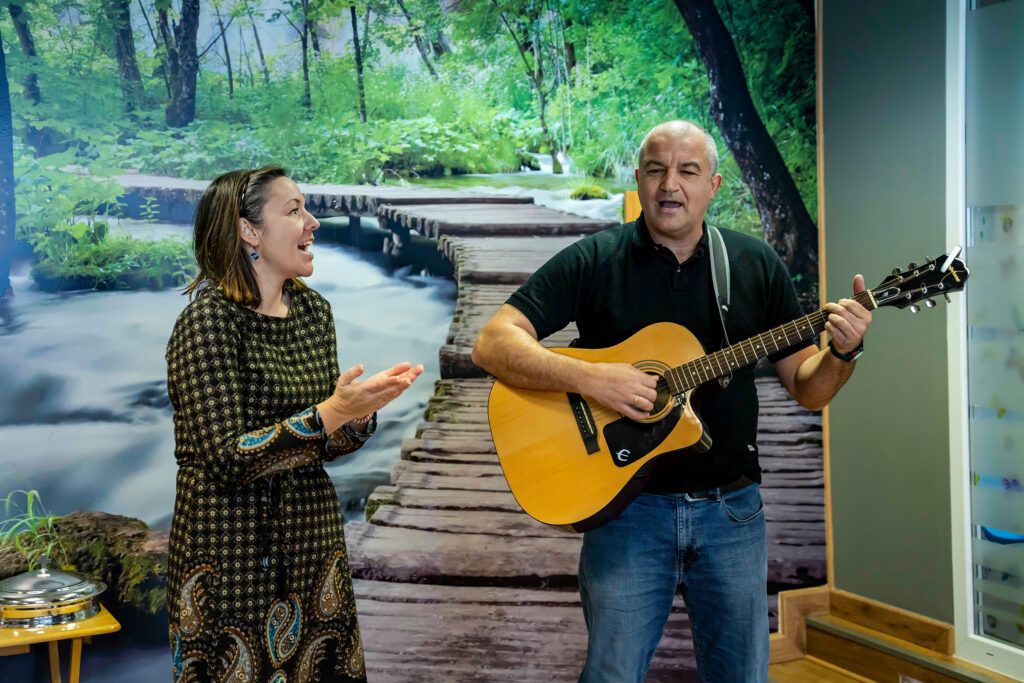
New church plants not only bring a gospel presence to their communities but also fill a vital need for discipleship. ABWE missionaries Caleb and Krystie Hague have noted a distinctive trend in Spain in which many people in the country are converting to Christianity through online resources yet lack a local church for continued support and guidance.
One such young man named Loren, a self-help video creator on TikTok, was scrolling through the video app when he connected with a man in Guatemala who shared the gospel with him online.
“What you really need is Christ,” the TikToker told him.
As they read Isaiah 40 together, Loren understood that Christ died for him, and he trusted in Christ for salvation.
He immediately knew that he needed to find an evangelical church. A few weeks later, in July 2023, Loren was walking through an alley and considering how he might find such a congregation when he glanced up and spotted a sign for the Torres de la Alameda church plant.
Providentially, the Hagues had posted the sign just a few days prior in preparation for the church’s arrival in that building.
Missionaries Caleb Hague and Roy Jones began discipling Loren. The young man gave up drugs and tobacco and now leverages his platform on TikTok to share his testimony with others seeking fulfillment.
“Loren is the first completely unchurched new believer to attend the Torres church plant,” said Caleb. “We are praying that other Spaniards will come to Christ through contacts from the church.”
Shining Lights in the Community
ABWE missionaries and national partners encourage their congregations to live faithfully among their neighbors and look for creative avenues to establish themselves as gospel lights in the community—a goal they model well.
Missionaries Adam and Emily Byerly opened Brilla Café in December 2021 to connect with a broad range of people in Alcalá de Henares. Their coffee shop, serving locally roasted espresso-based drinks and light breakfast fare, has quickly become a valued establishment in the community, drawing over 100 patrons daily.
Some customers have become regulars, chatting over the counter about their lives and families while Adam, Emily, or their staff prepares their order. To further cultivate gospel opportunities, the Byerlys and their teammates repurpose the café’s intimate, welcoming seating area to host five English classes weekly.
In these classes, English conversation topics are designed to elicit spiritual dialogue, creating natural inroads for the gospel. The missionary team offers one-on-one Bible studies for those interested in learning more.
“Often people want to talk about Jesus or the Bible, but they don’t know if other people are comfortable with it. So once they find out this is a safe space for them, it gets the ball rolling,” said missionary Megan Kuhn.
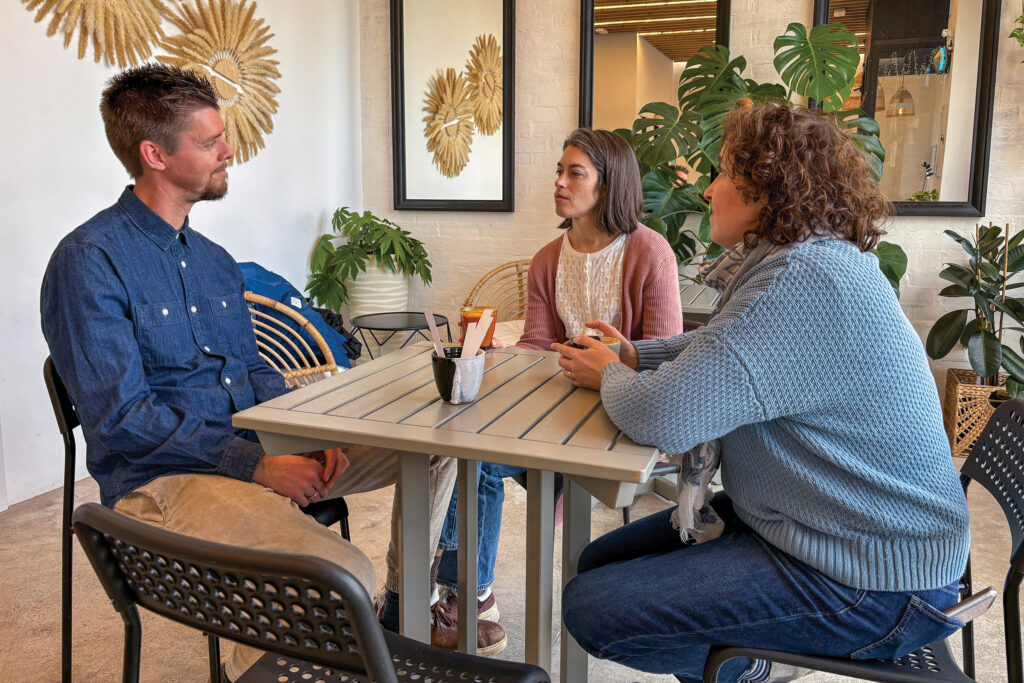
Additional ABWE teammates serve at Evangelical Christian Academy (ECA), an ACSI-accredited K-12 international school providing quality Christian education for the children of missionaries, businesspeople, and Spanish nationals. ECA has proven instrumental in allowing missionary families to expand their ministry throughout the region.
A Vision To Win Europe
In places like Spain, witnessing fruit from one’s ministry can take a lifetime. Reaching secular, self-sufficient individuals often requires an investment of years, even decades, without seeing visible results. Yet Christ is building his church in all nations—not least of all in Europe.
While faithfully persevering in their work, the ABWE team turns a hopeful gaze toward the spread of the gospel in Europe.
“We pray that God would bring reformation to the hearts of Spaniards, that our churches would be lights of revival to spread across Spain and Europe.”
Caleb Hague
“We pray that God would bring reformation to the hearts of Spaniards, that our churches would be lights of revival to spread across Spain and Europe,” conveyed Caleb Hague.
God is working even now, emphasizes Miguel Ángel. “Our God is the God of the impossible, and I am living proof that a Spaniard can kneel before God and say ‘Lord, save me, because I need you.’”
